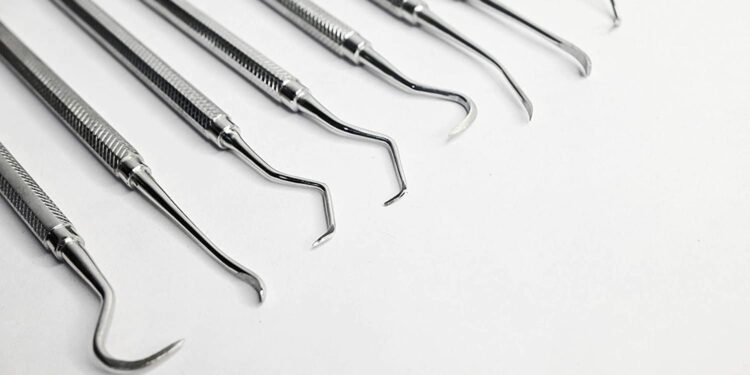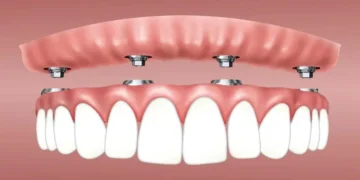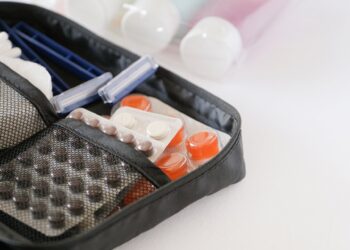Having the appropriate equipment in a dental office guarantees that procedures are carried out accurately, quickly, and with the comfort of the patients in mind. Better results are achieved when dentists have a well-equipped toolkit that enables them to confidently diagnose, treat, and replace teeth.
Below are essential hand instruments that support various dental procedures.
Table of Contents
Diagnostic Instruments
Getting a clear view of a patient’s mouth is the first step to any dental procedure. Dental instruments like mirrors, probes, and explorers help dentists examine teeth and gums with precision.
Mouth mirrors make it easier to see in hard-to-reach places, and probes and explorers find gum disease, cavities, and plaque accumulation.
These tools are essential for identifying potential issues early. A periodontal probe, for instance, measures gum pocket depth to assess gum health.
Without the right diagnostic tools, even minor problems could go undiagnosed, which over time could result in more serious concerns with oral health.
Restorative Instruments
Fixing damaged or decayed teeth requires specialised tools that help shape, sculpt, and apply restorative materials.
Composite equipment, for example, helps to place and contour fills for a smooth finish. Their non-stick surfaces provide a smooth application, reducing the danger of material adhering to the tool rather than the teeth.
Modelling instruments are also key in restorative work, allowing dentists to sculpt waxes and composites with fine detail. Better control provided by their ergonomic designs guarantees that restorations blend naturally with surrounding teeth. These tools help create strong, functional, and aesthetically pleasing results.
Periodontal Instruments
Gum health is just as important as tooth care, and specific tools are designed to keep it in check.
Scalers and curettes are proficient instruments utilised to eliminate plaque and tartar from the tooth surface and below the gumline, thereby preventing the onset of periodontal disease and dental caries. These instruments facilitate the preservation of optimal periodontal health and diminish the likelihood of infections.
Dentists can target different areas with different scaler forms, thereby guaranteeing complete cleaning. On the other hand, curettes are softer on gum tissue with rounded tips, and thus, they’re perfect for deep cleaning. Frequent periodontal maintenance using these instruments helps avoid major dental problems down the road.
Surgical Instruments
Precision is essential when extractions or other surgical operations are required. By delicately detaching the tooth from surrounding tissues with little effort, luxating devices facilitate smoother tooth removal. Patients will find the treatment more comfortable as a result of the decreased trauma and accelerated recuperation.
Other surgical equipment, such as forceps and elevators, help to remove teeth with control and precision. Each instrument contributes to making treatments as efficient and painless as feasible. Using high-quality surgical tools reduces problems and promotes faster healing.
Instrument Maintenance
Proper care keeps dental tools in top condition and extends their lifespan.
With autoclaves being the most preferred method of eradicating bacteria and preventing cross-contamination, sterilisation is crucial. Cleaning the instrument right after usage can help to retain its effectiveness.
Cassettes provide a safe and organised way to store tools, protecting them from damage and contamination. They also make it easier to handle instruments during treatments. Regular checks keep tools sharp and running well. Taking good care of dental tools makes treatments safer and more effective.
Explore a wide range of high-quality dental hand instruments available at Erskine Dental to enhance precision and efficiency in your practice.


 Home
Home









